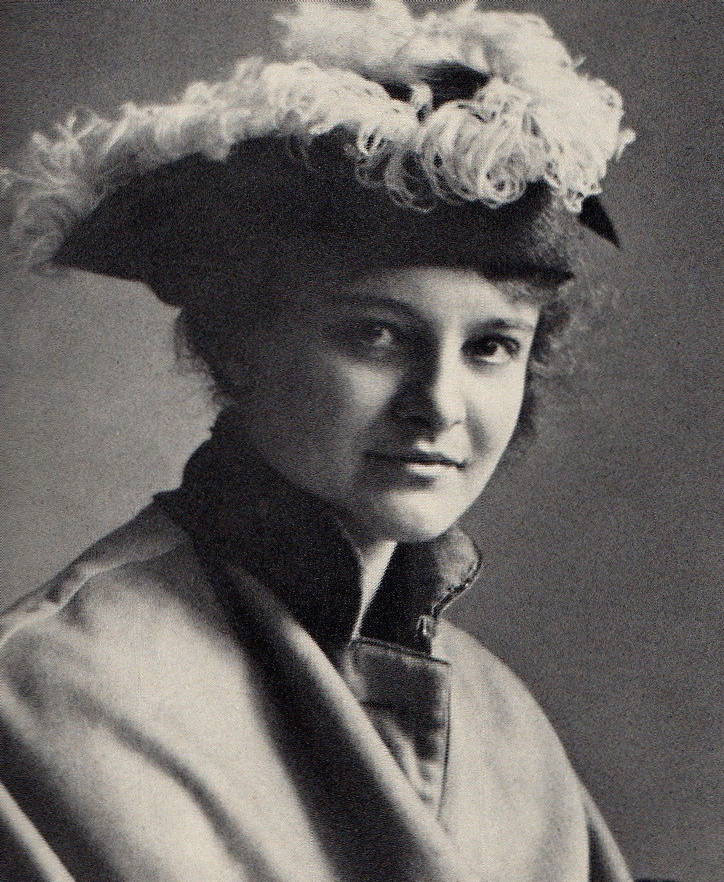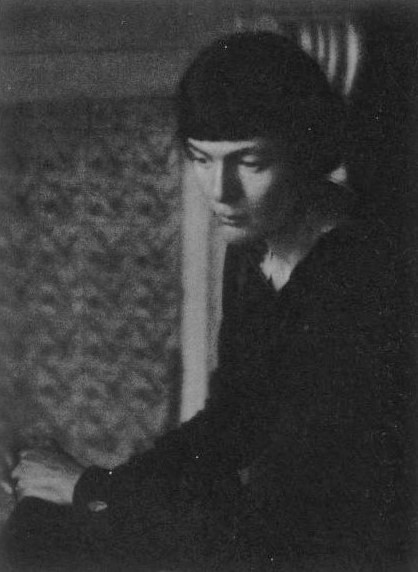|
Ripostes
''Ripostes of Ezra Pound'' is a collection of 25 poems by the American poet Ezra Pound, submitted to Swift and Co. in London in February 1912, and published by them in October that year. It was published in the United States in July 1913 by Small, Maynard and Co of Boston."Poems and Translations" The Library of America, accessed October 21, 2010. ''Ripostes'' is the first collection in which Pound moves toward the economy of language and clarity of imagery of the Imagism movement, and was the first time he used the word "Imagiste." Of its 25 poems, "Salve Pontifex" had appeared in ''A Lume Spento'', and eight others had appeared in magazines. The book includes Pound's interpretation of the Old English poem, The Seafarer (poem), "The Seafarer".Alexander, Michael. ''The Poetic Achievement of Ezra Pound ... [...More Info...] [...Related Items...] OR: [Wikipedia] [Google] [Baidu] |
Ezra Pound
Ezra Weston Loomis Pound (30 October 1885 – 1 November 1972) was an expatriate American poet and critic, a major figure in the early modernist poetry movement, and a Fascism, fascist collaborator in Italy during World War II. His works include ''Ripostes'' (1912), ''Hugh Selwyn Mauberley'' (1920), and his 800-page Epic poetry, epic poem, ''The Cantos'' (c. 1917–1962). Pound's contribution to poetry began in the early 20th century with his role in developing Imagism, a movement stressing precision and economy of language. Working in London as foreign editor of several American literary magazines, he helped discover and shape the work of contemporaries such as T. S. Eliot, Ernest Hemingway, and James Joyce. He was responsible for the 1914 serialization of Joyce's ''A Portrait of the Artist as a Young Man'', the 1915 publication of Eliot's "The Love Song of J. Alfred Prufrock", and the serialization from 1918 of Joyce's ''Ulysses (novel), Ulysses''. Hemingway wrote ... [...More Info...] [...Related Items...] OR: [Wikipedia] [Google] [Baidu] |
Dorothy Shakespear
Dorothy Shakespear (14 September 1886 – 8 December 1973) was an English artist. She was the daughter of novelist Olivia Shakespear and the wife of American poet Ezra Pound. One of a small number of women vorticist painters, her art work was published in ''BLAST'', the short-lived but influential literary magazine. Dorothy and Pound first met in 1909 in London, and after a long courtship the two married in 1914. They lived in Paris from 1920 until 1924, and in 1925 settled in Rapallo, Italy. In spite of her husband's 50-year affair with Olga Rudge, whom he met in Paris in the early 1920s, Dorothy stayed married to Pound. In 1926 she gave birth to a son Omar Pound, who was raised in England by her mother. By the 1930s she received a number of family bequests, making her financially independent, but lost much of her money by following Pound's advice to invest in Benito Mussolini's Fascist regime. Toward the end of World War II, Dorothy and Pound were evacuated from their hom ... [...More Info...] [...Related Items...] OR: [Wikipedia] [Google] [Baidu] |
Imagism
Imagism was a movement in early-20th-century Anglo-American poetry that favored precision of imagery and clear, sharp language. It is considered to be the first organized modernist literary movement in the English language. Imagism is sometimes viewed as "a succession of creative moments" rather than a continuous or sustained period of development. The French academic René Taupin remarked that "it is more accurate to consider Imagism not as a doctrine, nor even as a poetic school, but as the association of a few poets who were for a certain time in agreement on a small number of important principles".Taupin, René (1929). ''L'Influence du symbolism francais sur la poesie Americaine (de 1910 a 1920)''. Paris: Champion. Translation (1985) by William Pratt and Anne Rich. New York: AMS. The Imagists rejected the sentiment and discursiveness typical of Romantic and Victorian poetry. In contrast to the contemporary Georgian poets, who were generally content to work within that tra ... [...More Info...] [...Related Items...] OR: [Wikipedia] [Google] [Baidu] |
The Seafarer (poem)
''The Seafarer'' is an Old English poem giving a first-person account of a man alone on the sea. The poem consists of 124 lines, followed by the single word "Amen". It is recorded only at folios 81 verso – 83 recto of the tenth-century Exeter Book, one of the four surviving manuscripts of Old English poetry. It has most often, though not always, been categorised as an elegy, a poetic genre commonly assigned to a particular group of Old English poems that reflect on spiritual and earthly melancholy. Summary Much scholarship suggests that the poem is told from the point of view of an old seafarer who is reminiscing and evaluating his life as he has lived it. The seafarer describes the desolate hardships of life on the wintry sea. He describes the anxious feelings, cold-wetness, and solitude of the sea voyage in contrast to life on land where men are surrounded by kinsmen, free from dangers, and full on food and wine. The climate on land then begins to resemble that of the wintr ... [...More Info...] [...Related Items...] OR: [Wikipedia] [Google] [Baidu] |
A Lume Spento
''A Lume Spento'' (translated by the author as ''With Tapers Quenched'') is a 1908 poetry collection by Ezra Pound. Self-published in Venice, it was his first collection. Background and writing Ezra Pound (1885–1972) studied Romance languages and literature, including French, Italian, Provençal, and Spanish at the University of Pennsylvania and Hamilton College. In these studies Pound—long interested in poetry—had gained an interest in turn-of-the-century English poetry. Pound dedicated ''A Lume Spento'' to Philadelphia artist William Brooke Smith, one of his friends, who had recently died of tuberculosis. The two had met in 1901–02, and Smith—an avid reader—introduced Pound to the works of English decadents such as Oscar Wilde and Aubrey Beardsley. The title of the work is an allusion to the third canto of Dante's ''Purgatory'', where it occurs in the speech of Manfred, King of Sicily Manfred ( scn, Manfredi di Sicilia; 123226 February 1266) was the last ... [...More Info...] [...Related Items...] OR: [Wikipedia] [Google] [Baidu] |
1912 Poetry Books
Year 191 (Roman numerals, CXCI) was a common year starting on Friday (link will display the full calendar) of the Julian calendar. At the time, it was known as the Year of the Consulship of Apronianus and Bradua (or, less frequently, year 944 ''Ab urbe condita''). The denomination 191 for this year has been used since the early medieval period, when the Anno Domini calendar era became the prevalent method in Europe for naming years. Events By place Parthia * King Vologases IV of Parthia dies after a 44-year reign, and is succeeded by his son Vologases V of Parthia, Vologases V. China * A coalition of Chinese warlords from the east of Hangu Pass launches a Campaign against Dong Zhuo, punitive campaign against the warlord Dong Zhuo, who seized control of the central government in 189, and held the figurehead Emperor Xian of Han, Emperor Xian hostage. After suffering some defeats against the coalition forces, Dong Zhuo forcefully relocates the imperial capital from Luoyan ... [...More Info...] [...Related Items...] OR: [Wikipedia] [Google] [Baidu] |
Poetry By Ezra Pound
Poetry (derived from the Greek ''poiesis'', "making"), also called verse, is a form of literature that uses aesthetic and often rhythmic qualities of language − such as phonaesthetics, sound symbolism, and metre − to evoke meanings in addition to, or in place of, a prosaic ostensible meaning. A poem is a literary composition, written by a poet, using this principle. Poetry has a long and varied history, evolving differentially across the globe. It dates back at least to prehistoric times with hunting poetry in Africa and to panegyric and elegiac court poetry of the empires of the Nile, Niger, and Volta River valleys. Some of the earliest written poetry in Africa occurs among the Pyramid Texts written during the 25th century BCE. The earliest surviving Western Asian epic poetry, the ''Epic of Gilgamesh'', was written in Sumerian. Early poems in the Eurasian continent evolved from folk songs such as the Chinese ''Shijing'', as well as religious hymns (the Sanskrit ''R ... [...More Info...] [...Related Items...] OR: [Wikipedia] [Google] [Baidu] |



.jpg)